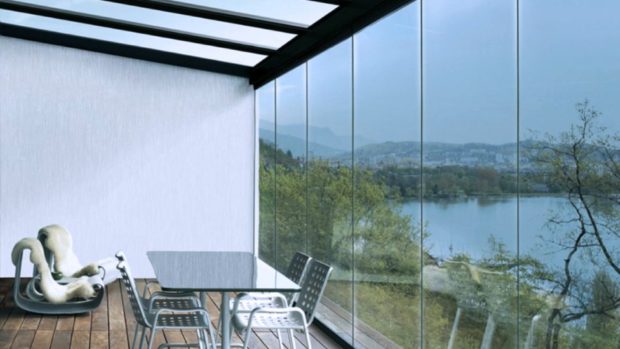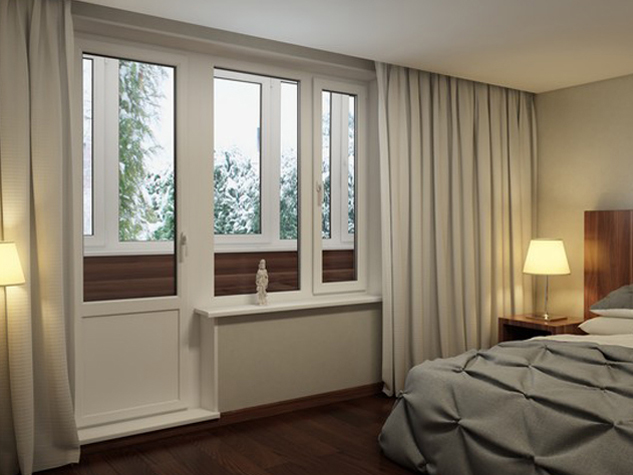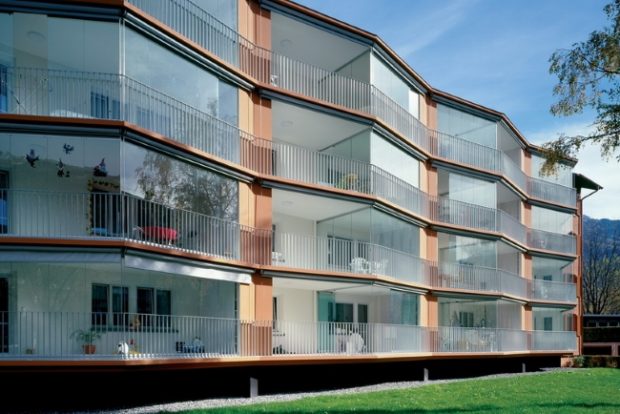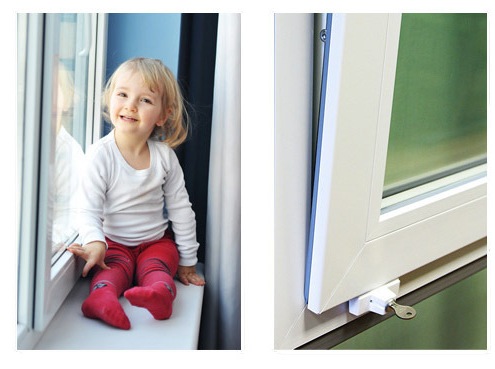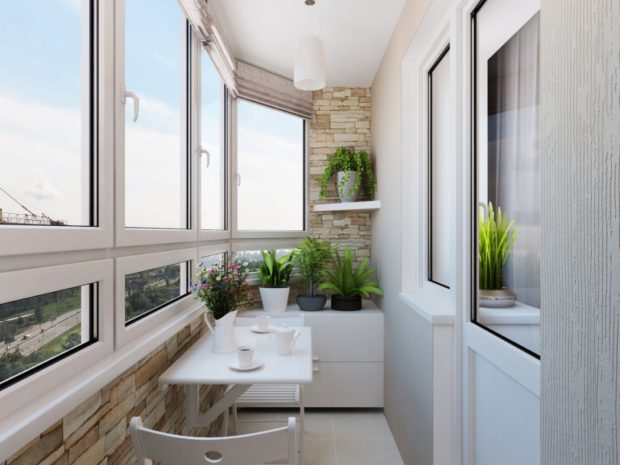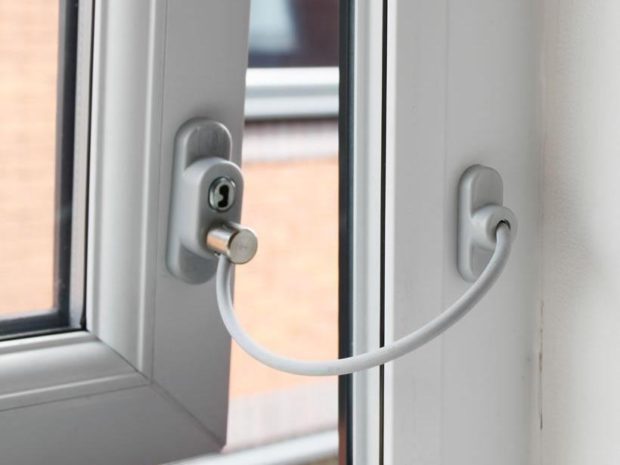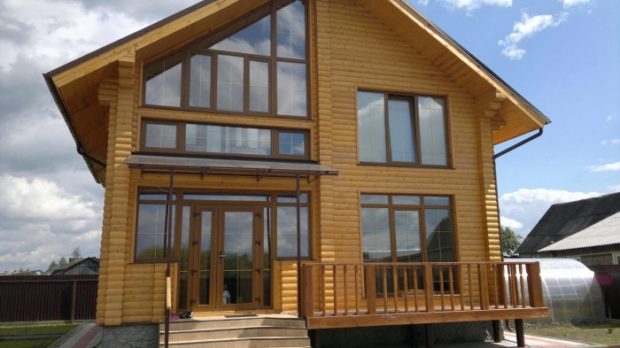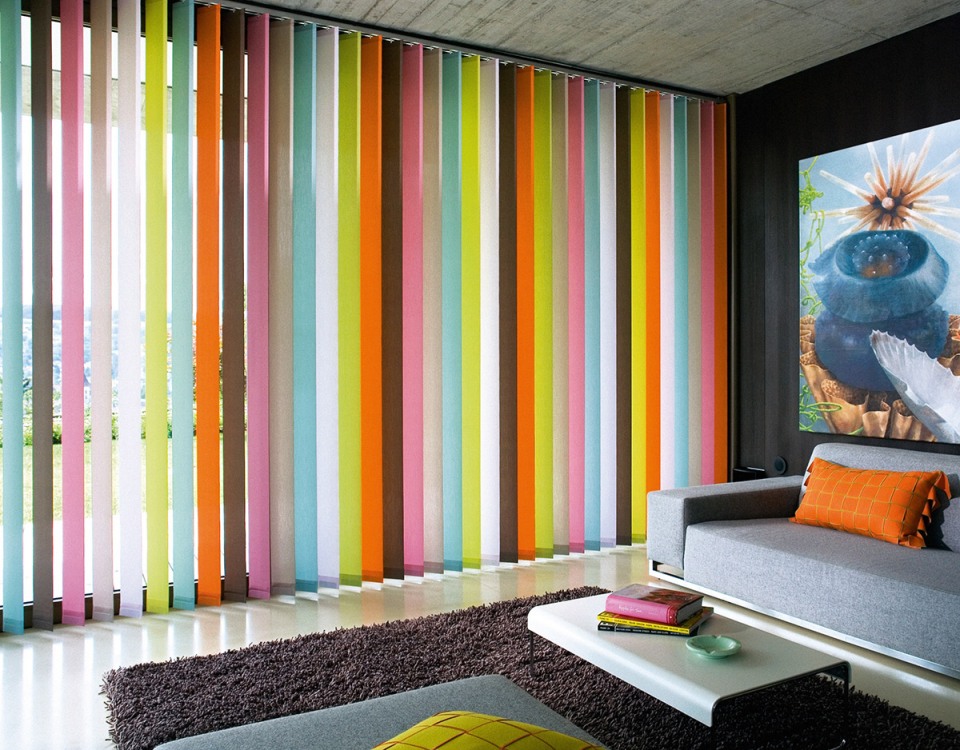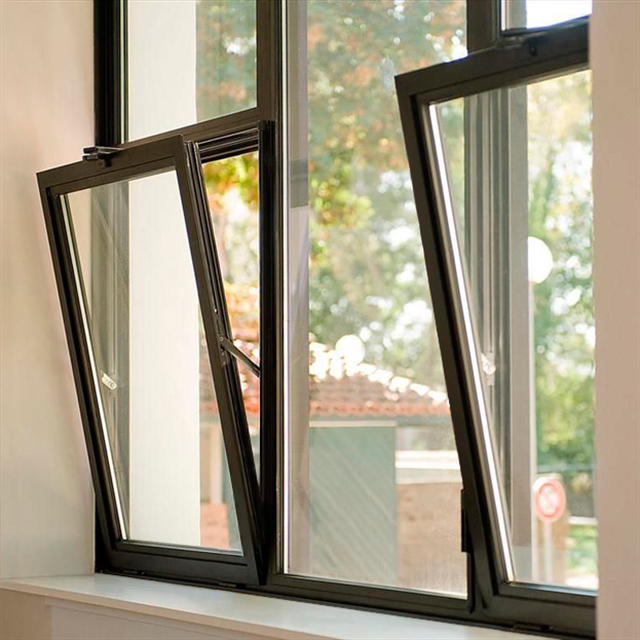Sliding Plastic Windows: 7 Tips For Choosing
Hinged and folding plastic windows - this is the most popular choice for owners of urban apartments and private houses. Against this background, sliding systems seem undeservedly forgotten. They save space on the balcony and beautifully decorated terrace or veranda. We understand the advantages, disadvantages, types and features of the choice of sliding plastic windows.
Advantages and disadvantages
Sliding windows successfully put on loggias, balconies, verandas and terraces. They retain all the advantages of swing plastic windows familiar to us, but at the same time they allow us to win in space and get a more interesting and outwardly attractive system.
Advantages of sliding windows:
- space saving. Hinged windows require some space to open the wings. Plus, if windowsill If something is worth it, then all the items will have to be cleaned. Fully open sliding windows will not take up a single drop of space, but for a small balcony this is a significant advantage;
- fixing the valves in a certain position will not allow them to open or slam under the influence of a draft;
- wide glazing options, i.e. the hinged system can replace ordinary windows of any size or can be installed floor to ceiling;
- sliding windows have a lighter and more airy appearance, and some systems are completely devoid of jumpers, opening a chic view of the city or natural landscape;
- high strength and reliability in spite of visual lightness;
- sliding systems allow you to organize warm and cold glazing;
- the mosquito net in such windows also moves, allowing you to completely free the window opening;
- ease of opening and closing the valves, their fixation;
- the ability to install a window of any size.
Among the shortcomings, we note:
- moving parts of the system must be lubricated once a year;
- difficulties in leaving - one of the leaves will be difficult to wash;
- the system is not suitable for narrow sections of glazing, so the wings will not move where;
- lift-slide and tilt-slide glazing system will not allow to fully open the window opening, but this is not so significant minus;
- the system is inferior to traditional hinged windows in terms of thermal insulation and moisture protection.
Usually for sliding systems use plastic profile, less often use aluminum, even less - wooden. Among plastic profiles for sliding windows, Rehau profiles have shown themselves best. The company is constantly improving its products and offers energy-saving profiles with different characteristics (number of cameras, installation width, etc.). To guaranteed get windows with the famous German profile (and not fake with a big name), it is better to contact trusted manufacturers. Residents of Odessa and the south of Ukraine can recommend the company NOVIKON, which since 2004 has been manufacturing windows based on the energy-efficient Rehau profile and provides a guarantee for a period of 15 years.
Types of Sliding Windows
Depending on the design features, sliding windows are:
- lifting and sliding;
- folding folding (accordion);
- inclined and movable;
- frameless glazing is isolated.
Sliding and Sliding Windows
Such a system is often used for glazing terraces and verandas. The mechanism of movement of the leaves resembles that implemented in wardrobes. When the sash is opened, it is slightly raised, the frame is shifted to the width of the sash located next to it and moves along its guide. When the sash is closed, the mechanism works as a clamp. Sliding and sliding windows protect well from cold, moisture and drafts, as the design has a rubber seal.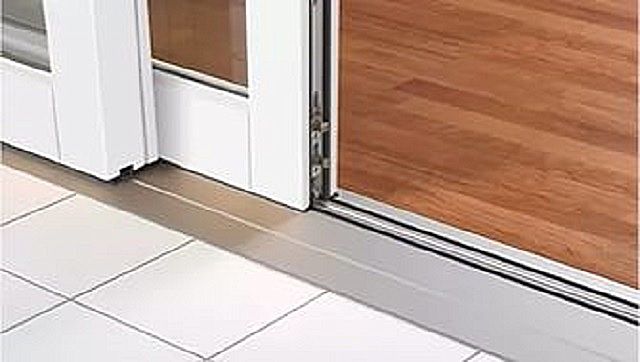
The design consists of at least two frames, one of which will be a carrier, and the second will be movable. Often, a guide rail is installed in parallel for mosquito net.
The system is characterized by high strength and stability, it allows you to install quite massive frames 200 * 300 cm in size. Minus of this type of windows - the entire opening can not be completely freed from the frames, since one leaf is hidden behind another. However, this particular type of construction is often used in private homes to fence terraces and verandas, for glazing the living room. The system retains excellent visibility and becomes a reliable barrier to the cold. The threshold, as a rule, is made low, almost imperceptible, because the border between the street and the house seems to be erased.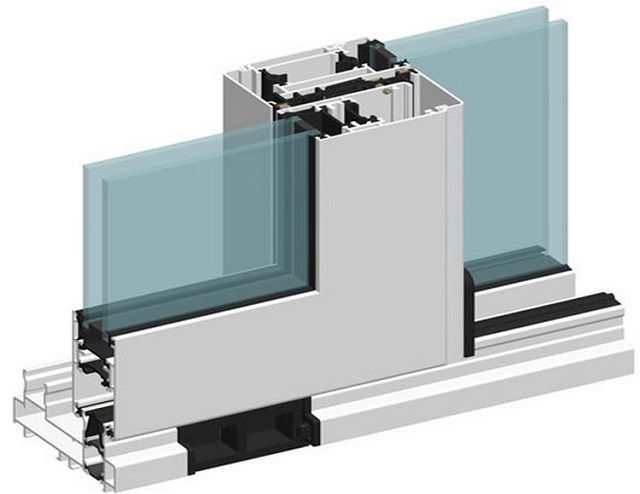
Tilt-and-slide windows
This mechanism resembles the principle of opening doors in tourist buses. First, you pull the sash towards you, and then move it to the side, while the rollers of the moving sash go into a parallel guide. You can completely move the sash, or you can fix it in a certain position by turning the handle. In addition, like hinged windows, tilt-and-slide can open in the airing position.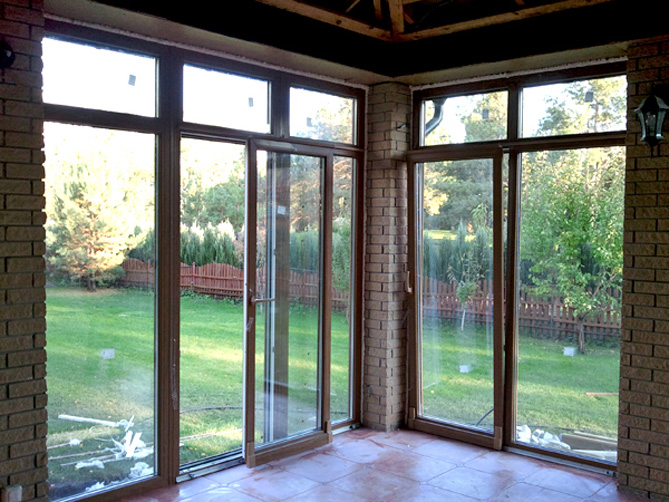
Like the sliding-sliding, tilting-sliding windows are provided with a rubber seal, which allows you to protect the apartment from cold and noise. The system is used for glazing balconies, loggias, as well as terraces and verandas. Here, alas, you can’t do without a threshold, because you will have to move a little more carefully, and manufacturers recommend installing special door sills that help protect the profile from possible damage.
When thinking over the glazing system, keep in mind that the moving leaf will push forward slightly, i.e. in front of the window it is necessary to provide a space with a width of 12-13 cm. Also take into account that it will be impossible to completely free the glazed area from glazing - some leaves will be stationary.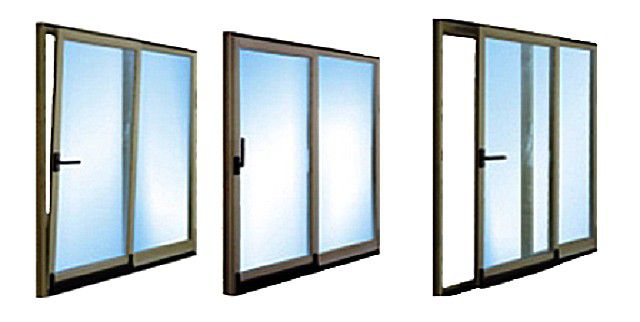
Sliding folding system ("accordion")
Such windows open like famous accordion doors. The flaps are shifted to the side and folded accordion, allowing you to completely free the entire opening. If desired, you can open only one or several wings. Yes, the ability to completely free the entire window opening is a big plus, but the main disadvantage of this system is its low tightness.
"Accordion" is not able to reliably protect the apartment from cold and noise - it will become an obstacle to wind and rainfall, therefore it is suitable only for cold glazing of loggias and verandas. The sliding folding system should not have more than 7 leaves, and the maximum opening size is 650 * 230 cm. In addition, it is necessary to provide a place where all the leaves will be folded.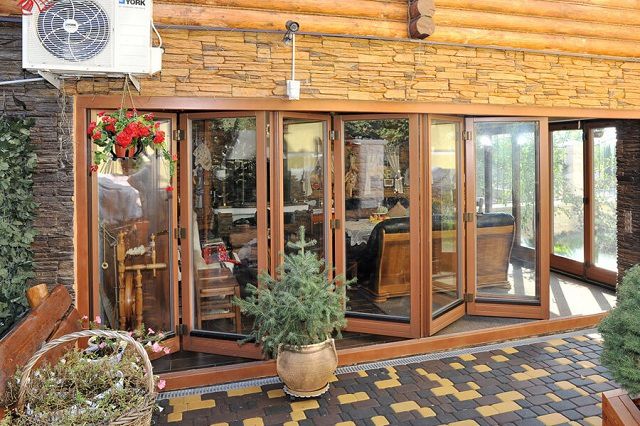
Frameless glazing system
Frameless glazing allows you to keep the opening view as much as possible - neither partitions nor profiles will interfere with you. Sashes are made of impact-resistant glass, attached to one or two rails. To open the window opening, it is necessary to alternately shift the wings to the side. There are no "dead" zones - the opening can be completely vacated, and all the wings will be neatly placed near the edge.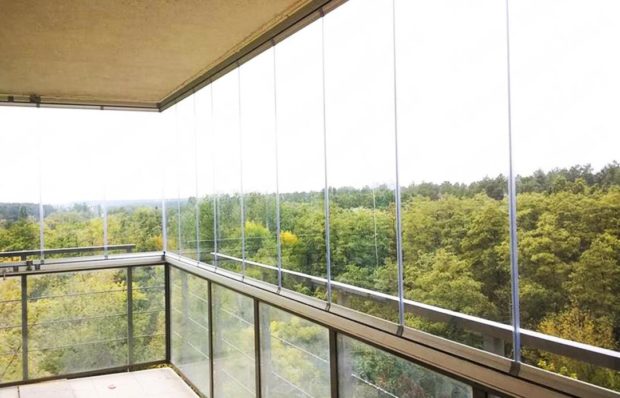
Frameless glazing is suitable for both balconies and terraces. The glass thickness is at least 6 mm, so the design is completely safe. The system of gaskets makes such a window airtight, but still, in terms of heat and sound insulation, frameless glazing is inferior to analogues. It is suitable only as cold glazing, when a balcony or a veranda is not supposed to be used in the summer as a residential heated room.
The system is suitable for balconies of any shape, transmits a lot of light, protects well from rain and wind, and the sashes on both sides will be easy to wash.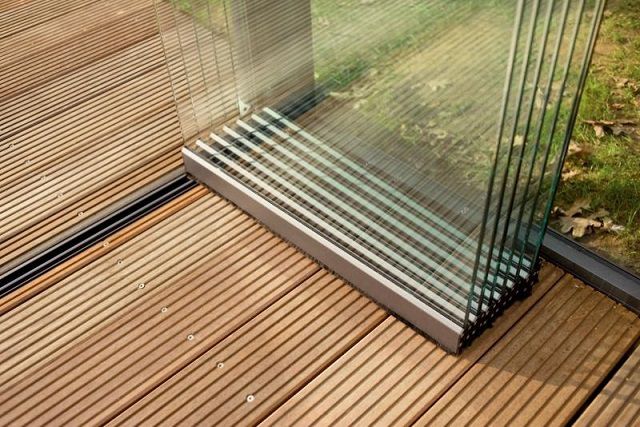
Where to use sliding windows?
You can use them anywhere, here are just a few examples:
- loggias and balconies. The first two sliding window systems are suitable for heated and insulated. If the view opens beautiful, and according to the documents everything can be agreed upon, then you can arrange glazing on the floor and enjoy the scenery. Residents of new buildings in this regard easier. If the developer used glazing in the floor and installed the usual hinged windows, then they can be replaced at any time with a sliding system;
- arbors and terraces at the dacha in a country house are simply created for sliding glazing systems;
- for the living room in a country house with access to the street, a sliding system will also be appropriate;
- office premises and trade pavilions;
- restaurants and cafes.
Yes, sliding systems cost a bit more than standard swing systems, but for significant advantages it’s worth paying.